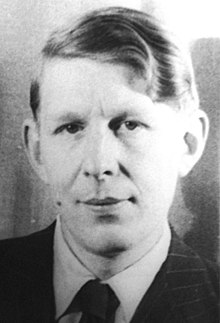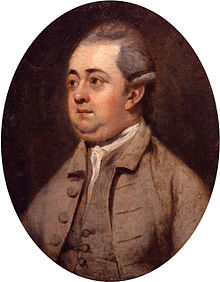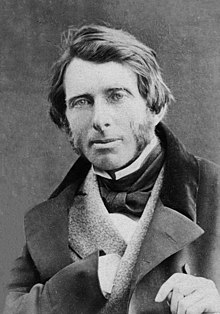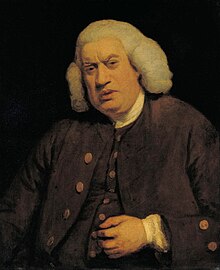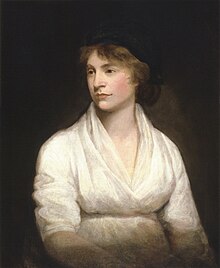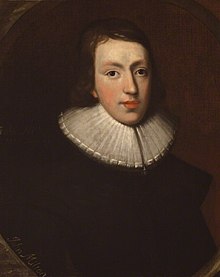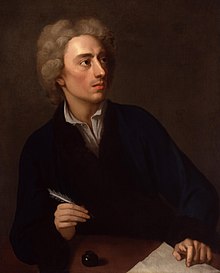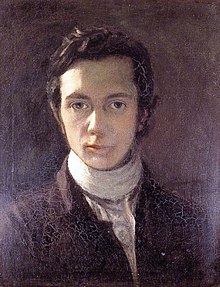
English essayists
An essay is, generally, a piece of writing that gives the author's own argument, but the definition is vague, overlapping with those of a letter, a paper, an article, a pamphlet, and a short story. Essays have been sub-classified as formal and informal: formal essays are characterized by "serious purpose, dignity, logical organization, length," whereas the informal essay is characterized by "the personal element (self-revelation, individual tastes and experiences, confidential manner), humor, graceful style, rambling structure, unconventionality or novelty of theme," etc.Essays are commonly used as literary criticism, political manifestos, learned arguments, observations of daily life, recollections, and reflections of the author.
12 episodes
Episodes in this category also belong to the following categories:
Aldous Huxley's Brave New World
Melvyn Bragg and guests discuss Aldous Huxley's dystopian 1932 novel Brave New World and its vision of a future of test tube babies, free love and round-the-clock surveillance.
9 April 2009
Featuring: David Bradshaw, Daniel Pick, Michèle Barrett
Culture20th-century English novelistsEnglish travel writersPhilosophers of literatureEnglish male short story writersJames Tait Black Memorial Prize recipients20th-century English philosophersPhilosophers of technologyMale essayistsEnglish emigrants to the United StatesBritish philosophers of culture, English pacifistsEnglish science fiction writersEnglish male novelistsBritish philosophers of mindPeople educated at Eton CollegeEnglish male poetsAnti-consumerists20th-century mysticsAlumni of Balliol College, OxfordEnglish short story writersNew Age predecessorsEnglish essayistsEnglish satirists20th-century British essayistsLost Generation writersEnglish agnosticsDuke University facultyAuden
Melvyn Bragg and guests discuss WH Auden's life and poetry from Europe before WWII, reflecting on his travels to Spain, China and Germany and the rise of totalitarianism.
19 December 2019
Featuring: Mark Ford, Janet Montefiore, Jeremy Noel-Tod
CultureAmerican literary critics, American male dramatists and playwrightsEnglish male dramatists and playwrights20th-century English male writersAmerican male essayists, American male poets20th-century American male writersAmerican male non-fiction writersEnglish LGBTQ poetsGay academics20th-century English poets20th-century English non-fiction writersGay dramatists and playwrights, Gay poetsMembers of the American Academy of Arts and LettersEnglish emigrants to the United StatesAnglican poetsAmerican lecturersModernist theatre20th-century American essayistsEnglish male poetsAmerican LGBTQ poetsEnglish literary criticsAlumni of Christ Church, OxfordNaturalized citizens of the United StatesEnglish essayistsFormalist poetsLGBTQ AnglicansOxford Professors of PoetryEnglish male non-fiction writersBritish male essayistsBertrand Russell
Melvyn Bragg and his guests discuss the influential 20th-century British thinker Bertrand Russell, widely regarded as one of the founders of Analytical philosophy.
6 December 2012
Featuring: A. C. Grayling, Mike Beaney, Hilary Greaves
PhilosophyNobel laureates in LiteratureBritish philosophers of languageGeorgistsEnglish political writersFree love advocatesSet theoristsAristotelian philosophersWriters about religion and scienceJerusalem Prize recipientsFellows of Trinity College, CambridgeEnglish logiciansPhilosophers of mathematicsBritish historians of philosophyEmpiricistsOntologistsMetaphysics writersBritish political philosophersFellows of the Royal SocietyMetaphilosophersTheorists on Western civilizationBritish ethicistsPhilosophers of literatureBritish free speech activists20th-century English philosophersAnalytic philosophersEnglish humanistsRhetoric theoristsAtheist philosophersEnglish political philosophersEnglish anti-fascistsEnglish people of Scottish descentPhilosophers of historyEnglish agnostics20th-century atheistsConsequentialistsEnglish socialistsPhilosophers of social scienceBritish philosophers of religionPresidents of the Aristotelian SocietyLogiciansPhilosophers of lawPhilosophers of sexuality19th-century English mathematiciansCritics of work and the work ethicSecular humanistsPhilosophers of technologyPhilosophers of economicsWriters about globalizationBritish philosophers of educationBritish philosophers of culture, English pacifistsBritish philosophers of logicCritics of the Catholic ChurchPeople from MonmouthshireAlumni of Trinity College, CambridgeLinguistic turnPhilosophers of loveEuropean democratic socialistsBritish consciousness researchers and theoristsWriters about activism and social changeEnglish Nobel laureatesMembers of the Order of MeritEnglish prisoners and detaineesUtilitariansIntellectual historians, University of Chicago facultyEnglish scepticsBritish critics of ChristianityEnglish people of Welsh descentUniversal basic income writersBritish philosophers of mind19th-century English philosophersBritish critics of religionsAcademics of the London School of Economics, British philosophers of science19th-century atheistsUniversity of California, Los Angeles facultyAnti-nationalists20th-century English mathematiciansEnglish essayistsFreethought writersBritish atheism activistsWriters about communism19th-century English essayistsEnglish male non-fiction writersEdward Gibbon
Melvyn Bragg and guests discuss the life and ideas of the writer of The History of the Decline and Fall of the Roman Empire, one of the most celebrated works of its kind.
17 June 2021
Featuring: David Womersley, Charlotte Roberts, Karen O'Brien
CultureEnglish rhetoriciansFellows of the Royal SocietyEnglish essayistsAlumni of Magdalen College, OxfordBritish MPs 1774–1780British critics of religionsEnglish ProtestantsEnglish male non-fiction writers18th-century English historiansPeople educated at Westminster School, LondonBritish MPs 1780–1784, Members of the Parliament of Great Britain for English constituenciesFreemasons of the Premier Grand Lodge of England18th-century English non-fiction writersTheorists on Western civilization18th-century English male writersIrony theoristsRhetoric theoristsBritish male essayistsFanny Burney
Melvyn Bragg and his guests discuss the life and work of the 18th-century writer Fanny Burney, also known as Frances D'Arblay and Frances Burney, best known for her novel Evelina.
23 April 2015
Featuring: Nicole Pohl, Judith Hawley, John Mullan
CultureWriters from LondonWriters from King's LynnConversationalists19th-century English dramatists and playwrightsEnglish pamphleteersEnglish essayists18th-century English diaristsEnglish satiristsStreathamites18th-century English women writers18th-century English novelistsEnglish women poets19th-century English novelistsEnglish women dramatists and playwrights19th-century English women writersEnglish women novelistsBritish women essayistsJohn Ruskin
Melvyn Bragg discusses the life and work of John Ruskin, art and social critic, and one of the most influential figures of the Victorian era.
31 March 2005
Featuring: Dinah Birch, Keith Hanley, Stefan Collini
Alumni of Christ Church, OxfordEnglish children's writersEnglish philosophersArtists' Rifles soldiers19th-century British economistsCritics of political economyEnglish essayistsCritics of work and the work ethicEnglish fantasy writersArts and Crafts movement artistsArchitectural theoreticiansMale essayistsAlumni of King's College LondonAnti-consumeristsAnglo-ScotsEnglish people of Scottish descent19th-century British journalistsJohnson
Melvyn Bragg discusses Samuel Johnson, a giant of 18th century literature, language and letters, and perhaps the most quotable Englishman to have ever lifted a pen.
27 October 2005
Featuring: John Mullan, Jim McLaverty, Judith Hawley
English sermon writersEnglish travel writersEnglish literary critics18th-century lexicographers, 18th-century writers in LatinConversationalistsEnglish essayistsAnglican saintsStreathamitesBurials at Westminster AbbeyMale essayistsEnglish Anglicans18th-century English writersPeople with mood disorders18th-century English poetsEnglish biographers18th-century English male writersMary Wollstonecraft
Melvyn Bragg and guests John Mullan, Karen O'Brien and Barbara Taylor discuss the life and ideas of the pioneering British Enlightenment thinker Mary Wollstonecraft.
31 December 2009
Featuring: Karen O'Brien, John Mullan, Barbara Taylor
PhilosophyEnglish travel writersFeminist theorists18th-century British essayists18th-century English novelistsHistorians of the French RevolutionEnglish women philosophersFrench–English translatorsWriters of Gothic fictionEnglish feminist writers, English feministsBurials at St Pancras Old ChurchBritish philosophers of educationGodwin familyBritish women essayists18th-century British philosophersEnglish philosophersDeaths in childbirthGerman–English translatorsPeople from Somers Town, LondonEnglish UnitariansFounders of English schools and collegesEnglish essayistsEnlightenment philosophersEnglish educational theorists18th-century English historiansEnglish republicansScholars of feminist philosophyEnglish women novelistsMill
Melvyn Bragg discusses the 19th century political philosopher John Stuart Mill and his treatise On Liberty which is one of the sacred texts of liberalism.
18 May 2006
Featuring: A. C. Grayling, Janet Radcliffe Richards, Alan Ryan
PhilosophyBritish political philosophersHonorary Fellows of the Royal Society of EdinburghEnglish libertariansBritish philosophers of languageConsequentialistsInfectious disease deaths in FranceEnglish socialistsUtilitariansEnglish suffragistsTheorists on Western civilizationBritish ethicistsBritish socialistsEnglish political writersLogiciansEnglish feminist writers, English feministsBritish free speech activistsPhilosophers of sexualityPhilosophy writersBritish classical liberal economistsPhilosophers of economicsBritish social liberals19th-century English non-fiction writersFellows of the American Academy of Arts and SciencesPhilosophers of cultureRectors of the University of St AndrewsPhilosophers of psychologyBritish philosophers of mindEnglish logicians19th-century English philosophersBritish philosophers of logicEnglish autobiographersAnglo-ScotsUK MPs 1865–1868Empiricists19th-century English writersVoting theoristsEuropean democratic socialistsEnglish essayistsEnglish political philosophers19th-century English essayistsEnglish male non-fiction writersEnglish non-fiction writersPhilosophers of scienceEnglish people of Scottish descentPhilosophers of historyEnglish republicansScholars of feminist philosophyEnglish agnosticsBritish male essayistsMilton
Melvyn Bragg examines the literary and political career of the 17th century poet John Milton, examining work such as Paradise Lost as well as his role as propagandist during the English Civil War.
7 March 2002
Featuring: John Carey, Lisa Jardine, Blair Worden
Mythopoeic writersChristian humanistsBlind writersEnglish male dramatists and playwrightsPeople from the City of LondonLiteracy and society theorists17th-century English dramatists and playwrights17th-century English philosophersEnglish writers with disabilitiesBritish philosophers of religionPamphleteersNeoclassical writersRhetoriciansBritish free speech activistsEpic poetsChristian poetsSocial philosophersMale essayistsAnglican poetsDeaths from kidney failure in the United KingdomMetaphor theoristsEnglish DissentersRhetoric theoristsAlumni of Christ's College, Cambridge17th-century writers in LatinLiterary theoristsCritics of the Catholic ChurchEnglish male poets17th-century English writersEnglish theologians17th-century English poetsEnglish Anglican theologiansWriters from LondonAnti-Catholicism in the United KingdomBlind poetsCalvinist and Reformed poetsSonneteersAnglican philosophers17th-century English educatorsEnglish essayistsEnglish political philosophersEnlightenment philosophersEnglish educational theoristsWriters about activism and social changeEnglish non-fiction writersEnglish republicans17th-century English male writersPope
Melvyn Bragg and guests discuss the satirist Alexander Pope. One of the greatest poets of the English language, his brilliant satires have made him popular in our age but not in his own.
9 November 2006
Featuring: John Mullan, Jim McLaverty, Valerie Rumbold
Neoclassical writersEnglish Roman CatholicsTory poetsEnglish essayists18th-century English poetsPeople from the City of London18th-century British essayistsEnglish male poetsEnglish male non-fiction writersRoman Catholic writersTranslators of HomerEnglish Catholic poetsFreemasons of the Premier Grand Lodge of England18th-century English non-fiction writersTuberculosis deaths in England18th-century English male writersBritish male essayistsWilliam Hazlitt
Melvyn Bragg and guests Jonathan Bate, Uttara Natarajan and AC Grayling discuss the life and works of William Hazlitt.
8 April 2010
Featuring: Jonathan Bate, A. C. Grayling, Uttara Natarajan

